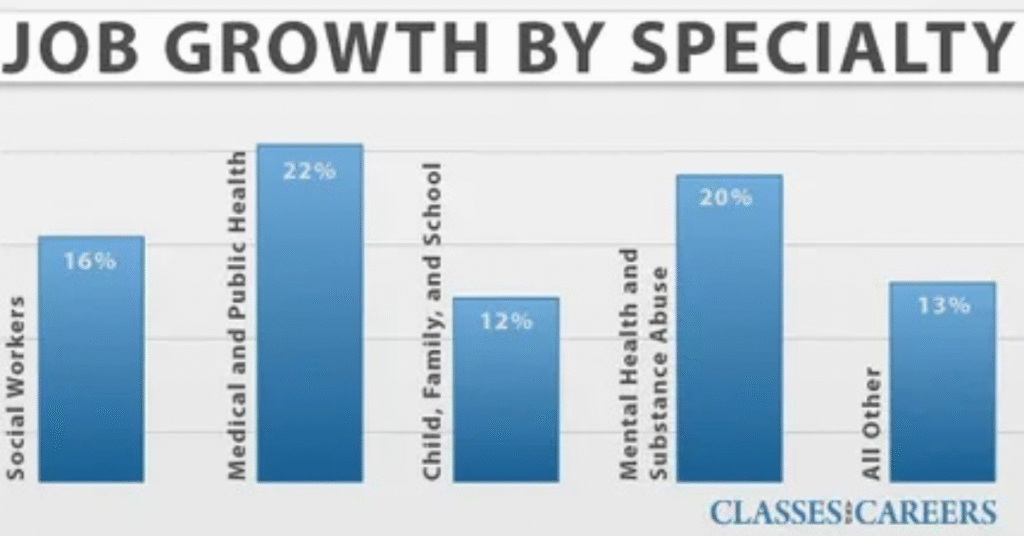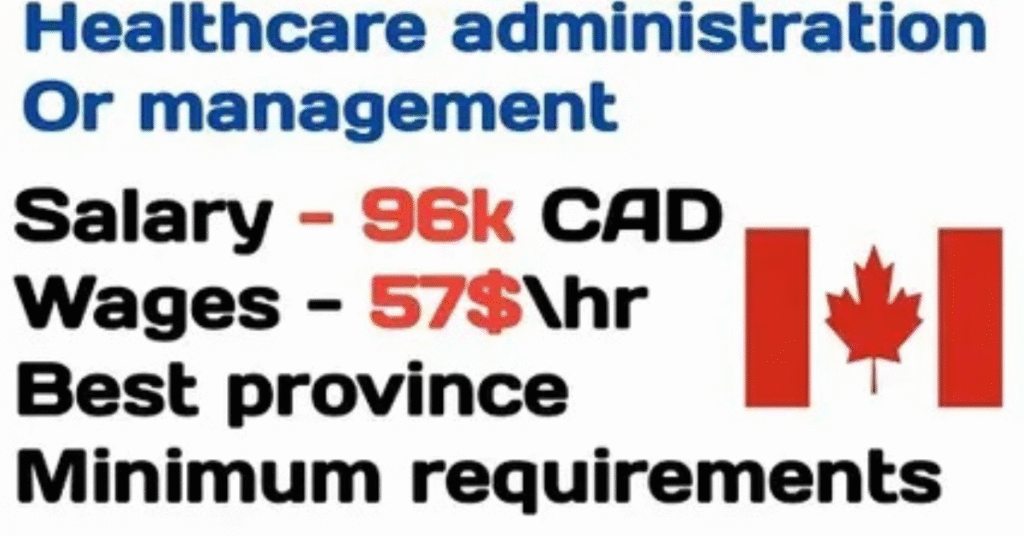What Does a Healthcare Administrator Do? This is a question many people interested in healthcare careers ask. A healthcare administrator is someone who oversees hospitals, clinics, or other healthcare organizations. They deal with staff, budgets, regulations, and patient care quality.
Without them, healthcare systems would not function properly. Their work is vital since they bridge the gap between medical staff, technology, and patients. They also ensure healthcare services are safe, legal, and effective. To know how healthcare facilities function on a daily basis and who ensures everything functions, you must learn about a healthcare administrator’s work.
What Is a Healthcare Administrator?

A healthcare administrator is the person who manages the daily operations of medical facilities. They are not doctors or nurses, but they work behind the scenes to ensure that hospitals and clinics run effectively. They supervise staff, handle budgets, and keep facilities in line with healthcare laws.
The difference between healthcare administration and healthcare management is often confusing. Administration focuses on the daily functions of a facility, while management often focuses on strategy and long-term planning. Healthcare administrators work in hospitals, nursing homes, clinics, insurance companies, and even public health organizations.
Core Responsibilities of Healthcare Administrators

The work of healthcare administrators is broad and demanding. Their main responsibility is to keep the facility operating efficiently. This includes managing staff schedules, hiring new employees, and ensuring patient care standards are met. They also develop policies and oversee compliance with healthcare regulations.
Another important role is financial management. Administrators create budgets, monitor billing, and ensure that resources are used effectively. They are also responsible for planning new services, adopting new technologies like electronic health records, and improving patient experiences.
YOU WILL LIKE: https://doctorambulance.com/what-is-a-pct-in-healthcare-full-guide-to-patient-care-technicians/
Core Responsibilities of Healthcare Administrators
| Responsibility | Description |
| Staff Management | Hiring, training, and scheduling employees |
| Financial Oversight | Budgeting, billing, and resource use |
| Policy & Compliance | Following healthcare laws and standards |
| Technology Management | Using EHRs, telehealth, and new systems |
| Patient Quality Programs | Improving patient safety and satisfaction |
Essential Skills for Healthcare Administrators

Healthcare administrators need strong leadership because they guide teams of nurses, doctors, and support staff. Communication is another key skill. They must explain policies, solve conflicts, and make sure everyone works toward the same goals.
They also need financial knowledge to manage budgets and evaluate costs. Analytical thinking helps them solve problems and make data-based decisions. Technology is also important, as administrators work with health information systems and digital records. They must also be adaptable because healthcare laws and practices change often.
Educational Pathways and Training

Most healthcare administrators hold at least a bachelor’s degree in healthcare administration, business administration, or a related field. However, many employers prefer a master’s degree, such as a Master of Healthcare Administration (MHA) or an MBA with a healthcare focus.
In addition to degrees, certifications can make administrators more competitive. Common credentials include the Fellow of the American College of Healthcare Executives (FACHE) and Certified Professional in Healthcare Quality (CPHQ). Continuous learning is essential because healthcare is always changing, and administrators must keep up with new policies and technologies.
Different Types of Healthcare Administrators

Not all healthcare administrators do the same work. Some run entire hospitals, while others manage specific departments. Hospital administrators oversee large operations, while nursing home administrators focus on long-term care facilities. Clinical managers run departments like surgery or radiology.
Health information managers specialize in digital health data and compliance with privacy laws. Public health administrators work in government agencies to manage programs that serve communities. Insurance administrators handle policy, claims, and healthcare costs for patients and providers.
Types of Healthcare Administrators
| Type of Administrator | Work Area |
| Hospital Administrator | Manages hospitals and medical centers |
| Nursing Home Administrator | Oversees long-term care facilities |
| Clinical Manager | Runs specific hospital departments |
| Health Information Manager | Manages patient data and EHR systems |
| Public Health Administrator | Works in community health programs |
A Day in the Life of a Healthcare Administrator

A healthcare administrator’s day is full of different activities. In the morning, they may review staffing schedules, meet with department heads, and address any urgent problems. Later, they may focus on financial reports, policy changes, or meetings with external partners.
They also spend time solving unexpected challenges. For example, if a clinic faces a shortage of nurses, the administrator must find solutions quickly. If a new regulation takes effect, they must update policies and train staff. Every day brings a balance of routine management and strategic decisions.
Career Growth and Job Outlook

The career outlook for healthcare administrators is very strong. According to the Bureau of Labor Statistics, employment in healthcare administration is projected to grow much faster than average. This is due to an aging population, advances in medical technology, and increased demand for healthcare services.
Salaries vary based on the type of facility and years of experience. Hospital administrators often earn more than those in smaller clinics. On average, healthcare administrators earn a six-figure salary in the United States. Career paths may also lead to senior positions such as Chief Operations Officer (COO) or Chief Executive Officer (CEO).
Average Salaries for Healthcare Administrators (U.S.)
| Setting | Average Salary (Annual) |
| Hospitals | $120,000+ |
| Nursing Homes | $95,000 |
| Clinics | $90,000 |
| Public Health Agencies | $85,000 |
| Insurance Companies | $100,000+ |
Challenges in Healthcare Administration

Healthcare administrators face many challenges. One major issue is staffing shortages, especially among nurses and support staff. High turnover makes it hard to keep operations running smoothly. Administrators must find ways to attract and keep talent while also managing budgets.
Another challenge is balancing cost and quality. Patients want the best care, but hospitals must also control expenses. Technology adoption brings both opportunities and risks. Electronic health records improve efficiency, but they also create concerns about cybersecurity and privacy. Administrators must manage these risks while keeping patient care at the center.
Work Environment of Healthcare Administrators

Healthcare administrators work in many types of settings. They are often found in hospitals, nursing homes, clinics, and public health agencies. Some also work in insurance companies or government offices. Each environment has different challenges. For example, a hospital administrator deals with high patient volume, while a nursing home administrator focuses on long-term care for residents.
The work environment also affects daily tasks. Administrators in hospitals may attend more meetings and coordinate multiple departments. In smaller clinics, they may handle both staff management and financial work. Despite differences, the goal is always the same: smooth operations and quality patient care.
Salary Expectations for Healthcare Administrators

Salaries for healthcare administrators vary depending on experience, education, and workplace type. Hospital administrators usually earn more than those in smaller clinics. On average, healthcare administrators in the United States make around $90,000 to $120,000 per year. Location also affects pay; urban areas tend to offer higher salaries.
Bonuses and benefits can add to overall compensation. Experienced administrators may move into executive roles like COO or CEO, which come with higher pay. Knowing salary expectations helps aspiring administrators plan their education and career path.
Future of Healthcare Administration

The role of healthcare administrators is evolving rapidly. Technology, such as electronic health records, telehealth, and AI, is changing how administrators work. They must adapt to new tools while maintaining patient care quality and regulatory compliance.
The demand for skilled administrators is expected to grow. Aging populations and complex healthcare systems mean administrators will be needed more than ever. Those who stay updated with trends and technology will have the best career opportunities.
SEE MORE: https://doctorambulance.com/are-ambulance-rides-covered-by-insurance/
Real-World Case Study of a Healthcare Administrator

A hospital in Texas faced a sudden nurse shortage. Patient care was at risk, and staff morale was low. The healthcare administrator quickly implemented a staffing plan, hired temporary nurses, and improved scheduling. The hospital returned to full operation within weeks.
This case shows how administrators solve real problems daily. They must think fast, communicate clearly, and make tough decisions. Their work ensures that patients receive care without interruption.
Final Thoughts on What Does a Healthcare Administrator Do

Healthcare administrators play a critical role in keeping healthcare systems running. They balance staff management, finances, patient safety, and compliance. Their work impacts both patients and medical staff every day.
The career is challenging but rewarding. With experience, education, and adaptability, administrators can grow into leadership roles. Understanding what they do helps anyone interested in healthcare see the importance of these professionals.
Conclusion
What Does a Healthcare Administrator Do? They manage the systems, staff, and policies that allow healthcare to work. Their job is demanding, but it is also rewarding. Administrators balance finances, patient care, and regulations. They also adapt to changes in technology and laws. Without them, healthcare facilities would not function effectively. Choosing this career means stepping into a leadership role that impacts both patients and healthcare professionals every day.
FAQ”s
Is a healthcare administrator the same as a hospital manager?
No. Hospital managers often focus on overall facility strategy, while healthcare administrators handle day-to-day operations.
Do healthcare administrators work with patients directly?
Usually, they do not provide direct care. Their role is more about management, finance, and policy.
What degree is best for becoming a healthcare administrator?
A Master of Healthcare Administration (MHA) is often the most respected, but bachelor’s degrees are also accepted.
Is healthcare administration a stressful career?
Yes, it can be stressful because administrators handle staffing, budgets, and regulations. However, it is also rewarding.
Can healthcare administrators become CEOs of hospitals?
Yes. Many administrators advance into top executive roles like COO or CEO over time.